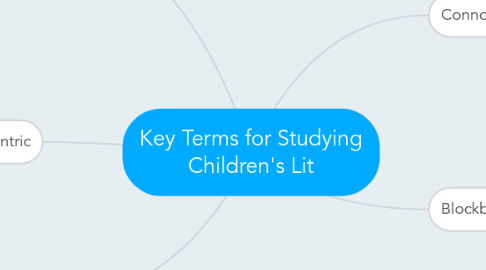Key Terms for Studying Children's Lit
by Hermione Hu

1. Egocentric
1.1. Nodelman and Reimer, #193
1.2. [,iɡo'sɛntrɪk], adj. self-absorbed, self-obsessed
1.3. thinking only of oneself; self-centered.
1.4. e.g. Being egocentric always deserves punishment in children's literature.
2. Idyll
2.1. Nodelman and Reimer, #198
2.2. ['aidil], n. single
2.3. a short poem or piece of writing describing a picturesque country scene or incident.
2.4. e.g. Children's literature with happy endings can be sorted to idyll.
3. Continuum
3.1. Nodelman and Reimer, #202
3.2. [kən'tɪnjuəm], n. single
3.3. a continuous sequence in which the elements next to each other are very similar, but the last and the first are very different.
3.4. e.g. In Harry Potter, Harry and Voldmort are contrasted poles in a continuum which contains both of the two and the other characters connected with them.
4. Connote
4.1. Hintz and Tribunella, #50
4.2. [kə'not], v. have connoted (present participle), imply
4.3. (of a word or phrase) imply or suggest something in addition to its main or literal meaning.
4.4. e.g. "Picture books" connotes books with illustration for children.
5. Blockbuster
5.1. Hintz and Tribunella, #72
5.2. ['blɑkbʌstɚ], n. blockbusters (plural)
5.3. (informal) a movie or book that is a great commercial success.
5.4. e.g. Blockbusters of Children's literature are often read both by children and adults.


